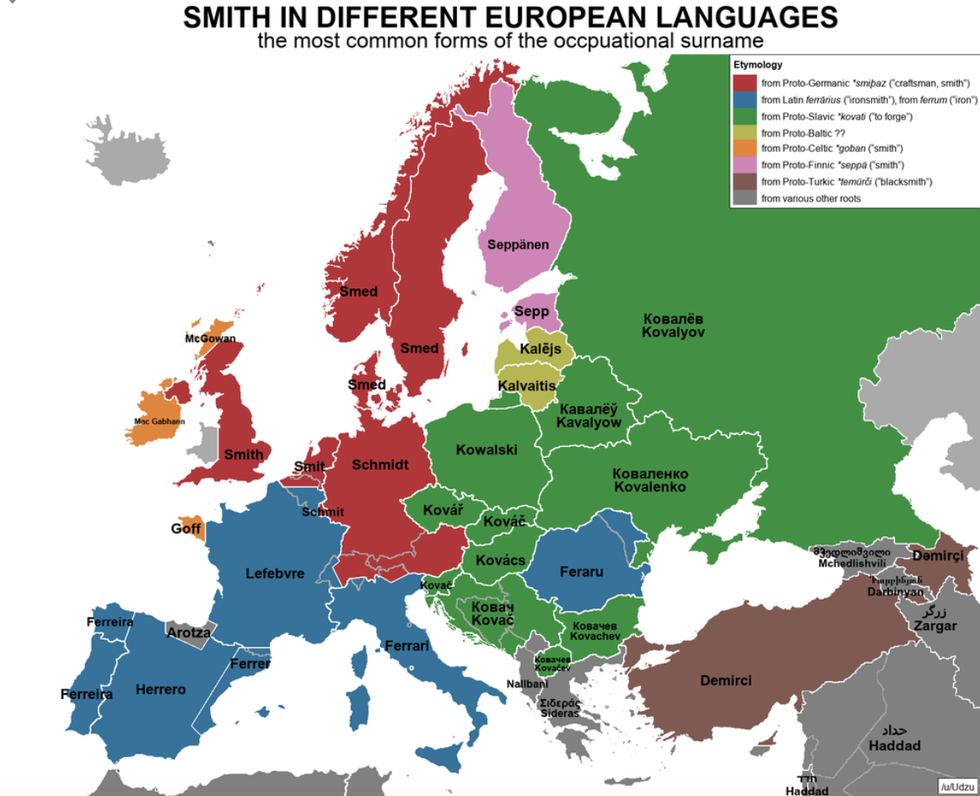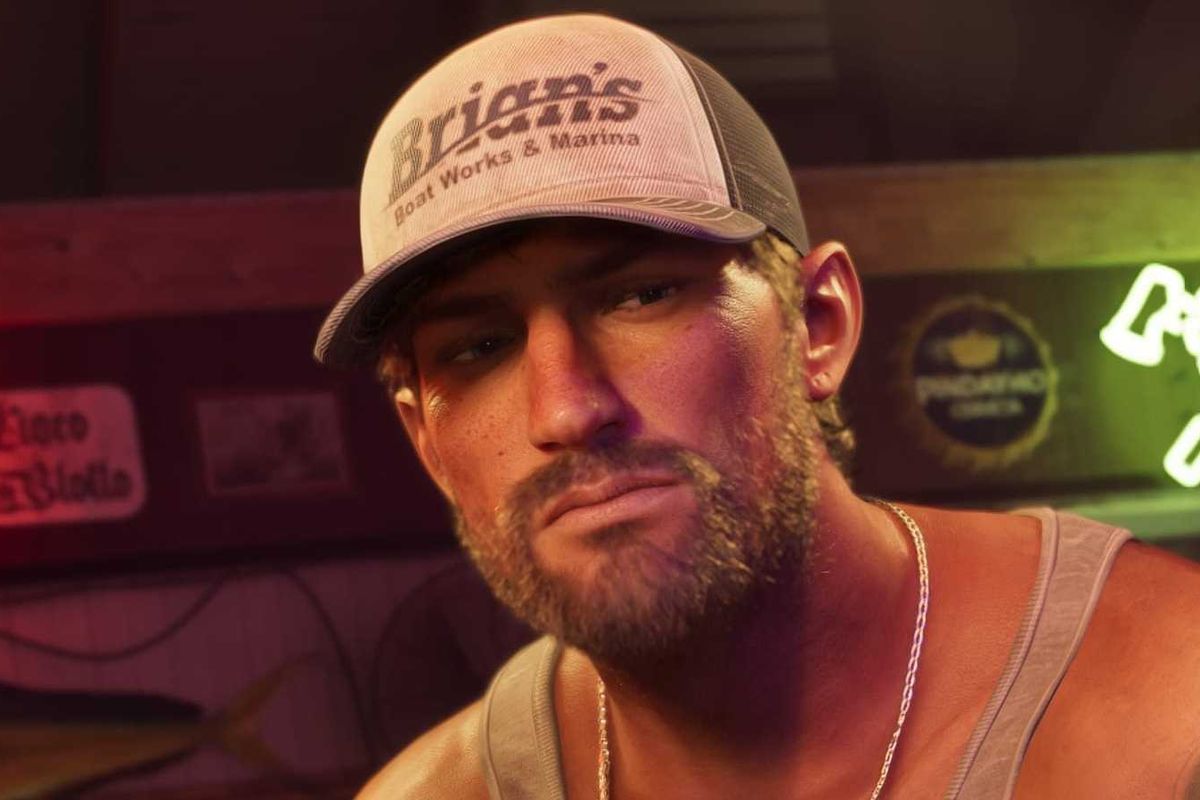
As the most common surname in the UK, it’s no great point of debate that “Smith” is arguably among the most boring – albeit popular – collections of letters in our nation’s nomenclature.
Perhaps most famously highlighted by Morrissey and Marr’s chosen band name, The Smiths, the surname is frequently satirised as shorthand for the ordinary or commonplace.
Even beyond British shores, the name was notably chosen as the ironically mundane surname for Angelina Jolie and Brad Pitt’s secret assassins in the 2005 Hollywood film, Mr & Mrs Smith.
While this – clearly – is no reflection of the people who bear such a name, many among the 500,000-odd people who carry it appear well aware of this line of thought, with travel writer Oliver Smith lamenting in The Telegraph in 2019 that he “officially” had “Britain’s most boring name” – with Oliver having topped the popularity charts for the sixth year running.
However, an etymological map of Europe appears to show that the surname travels incredibly well.
A post shared by Reddit user Udzu to the r/Etymology subreddit gives a fascinating breakdown of how the occupational surname loosely translates across the European continent.
With some of the translations appearing slightly similar in certain nations, the colour-coordinated map offers a breakdown of the different root languages at play.
For example, it suggests that the version of the name found in England, Germany, Holland and parts of Scandinavia originate from the Proto-Germanic (the ancestor of all Germanic languages) term for a craftsman – purportedly resulting in Smith, Schmidt, Smit and Smed, respectively.
Read more: Uber passenger who coughed on driver faces up to 16 years in jail
Asian grandmother who fought off attacker with stick receives nearly $600,000 in donations
Meghan Markle gave her autograph to a shop worker in 2009 ‘in case she became famous’
Across much of the Baltics and Eastern Europe, the map traces variations of the name back to the Proto-Slavic word meaning “to forge”, resulting in formulations such as Kovalyov (Russia), Kowalski (Poland), and Kovachev (Bulgaria).
And in parts of Western Europe, the map tied the equivalent to the Latin word for iron, ferrarum – resulting in surnames like Ferrari (Italy), Herrera (Spain), and Ferreira (Portugal).
However, some Reddit users gave suggestions for how to improve the map, with one saying: “Great map, but one nitpick.
“While Kovalyov is one version of “Smith” [in] Russian, Kuznetsov is far more popular [and] is the third most popular surname in Russia, while Kovalyov isn’t even in the top 20.”
And another pointed out that the people who use Smed as a surname in Sweden number in their hundreds, out of a population of 10 million, adding: “Occupational surnames are not a thing in Scandinavia.”
Meanwhile, another said: “I love this idea. I do have to point out that, as far as I know, the French name Lefèbvre comes from Latin faber, not ferrarius. Faber was a word that could refer to a smith, but also to other types of craftsmen, like carpenters and stone workers.”
Others appeared to take inspiration from the map.
“Seeing this connection, and how much sense it makes sense, is just so crazy to me. I honestly can’t believe I didn’t think about it before,” one said.
“[Today I learned] Kowalski, Schmidt and Ferrari are basically the same name,” another replied.
“Brb after I finish shooting a movie where every character is called ‘Smith’ in a different language.”
More: Netflix diverged from the original ‘Lupin’ – and the decision is more important than we realise













Donald Trump: 'One way or the other we're going to have Greenland'